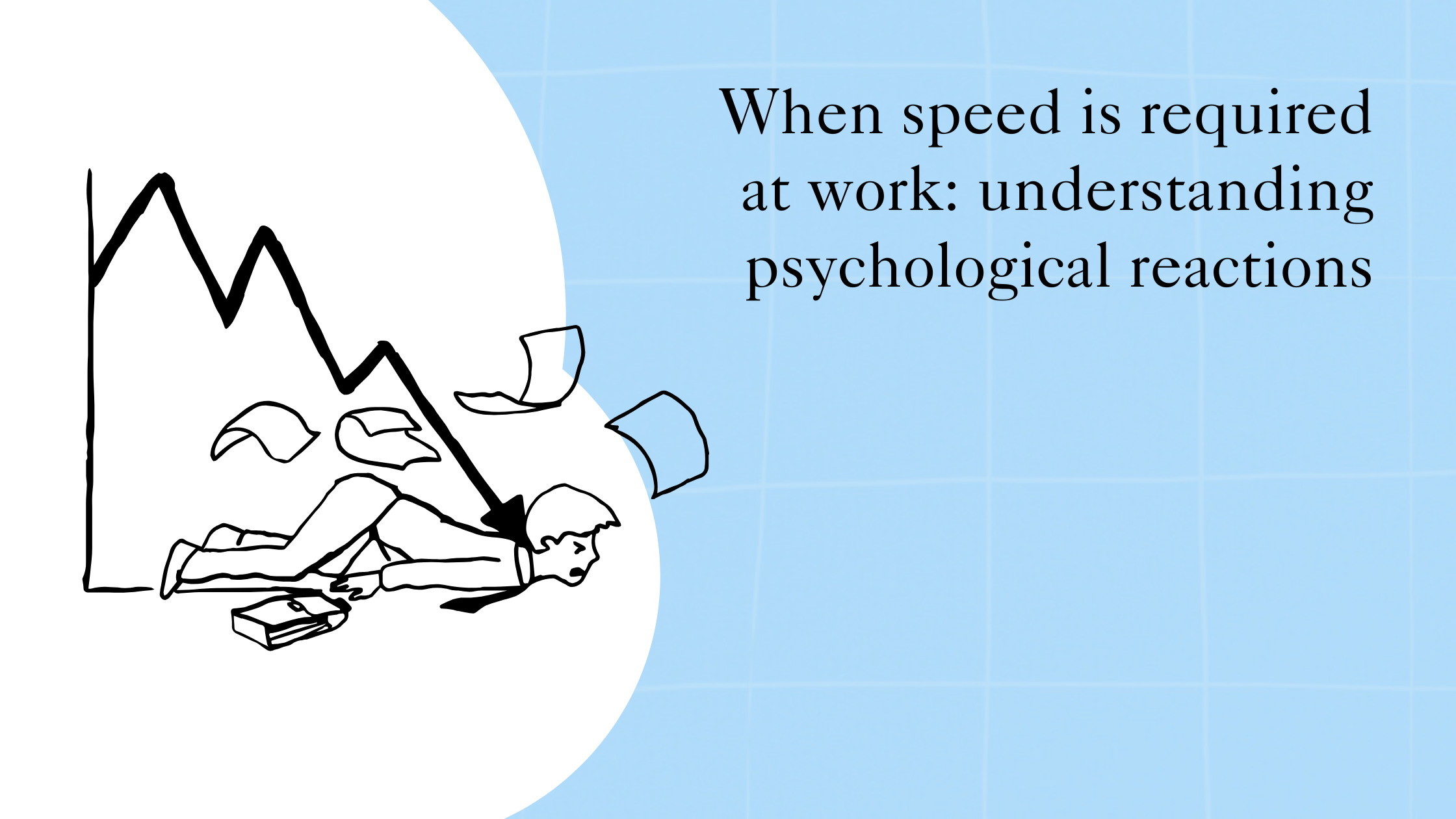In a business world where speed is often synonymous with productivity, it is essential to understand the psychological impact this can have on employees. When the pressure to deliver quickly comes from an external source, it can lead to a performance stress and a sense of loss of control. Being annoyed by last-minute requests and emergencies is therefore normal, because it involves much more than time and speed. It requires much greater mental effort.
Performance stress and loss of control
When we are subjected to imposed deadlines, we often lose our ability to manage our own time and priorities. This phenomenon is well documented in psychological literature. Here are some key points to consider:
- Collection of due date : External pressure transforms our perception of deadlines. We are no longer the decision-makers, and this can create a feeling of powerlessness. A study published in The Journal of Occupational Health Psychology points out that this pressure can lead to increased levels of anxiety and stress, affecting our performance and general well-being.
- External expectations : External expectations can be blurred and difficult to pin down, unlike our own, making the right response even more complex. This dynamic can lead to frustration and dissatisfaction.
The importance of autonomy
Conversely, when we have the freedom to manage our own time and tasks, we feel a greater sense ofautonomy. This concept is crucial to our psychological well-being and performance:
- Control over our actions : Autonomy allows us to make decisions about our work, which increases our commitment. A search from Mouvement santé mentale Québec has shown that employees who feel empowered are more likely to be motivated and satisfied in their work.
- Better understanding of expectations : When we are free to manage our own time, we also have a better understanding of our personal expectations. This promotes greater efficiency and satisfaction in our work.
The effects of last-minute requests
It's perfectly normal to feel irritated by last-minute requests and emergencies. These situations involve much more than just time management:
- Extra mental effort Emergencies, often referred to as « rush« , require considerable mental effort, which can lead to emotional exhaustion. A study published in Work & Stress suggests that the increased stress of tight deadlines can impair our ability to think creatively and solve problems effectively.

What can I do if I'm a worker?
As a worker, even if it's not your responsibility, there are steps you can take to manage the stress of tight deadlines:
- Prioritize tasks : Identify and focus on essential tasks. Use time management tools to organize your priorities.
- Communicate with your superior : Don't be afraid to express your concerns about deadlines. Open communication can help adjust expectations and reduce pressure.
- Taking breaks : Give yourself regular breaks to recharge your batteries. This can improve your concentration and efficiency.
What to do for the organization?
Organizations also have a crucial role to play in alleviating worker stress:
- Setting clear expectations : Make sure expectations and deadlines are clearly communicated. This helps employees plan their work more effectively.
- Encouraging autonomy : Empower employees to make decisions about their work. Giving them a degree of autonomy can improve their motivation and satisfaction.
- Setting up training courses : Offer training in stress management and time management techniques. This can help employees cope better with pressure.
Conclusion
Understanding the psychological reactions linked to the pressure of speed at work is essential to fostering a healthy and productive work environment. By cultivating autonomy and clearly defining expectations, both on the part of employees and managers, we can alleviate performance stress and improve job satisfaction. Acknowledging that these reactions are normal helps us to better manage our stress and evolve in a more balanced professional environment.
With this article, we've explored the various psychological aspects of speed requirements at work. If you have any further questions or would like to find out more, please contact us here or visit our Q&A.
Sources to explore
To deepen your knowledge on this subject, here are a few psychological articles that deal with the effects of work pressure and performance stress:
- Research on burnout, its impact on mental health and how it spreads throughout organizations.
- Study on performance psychology and how pressure affects our work.

